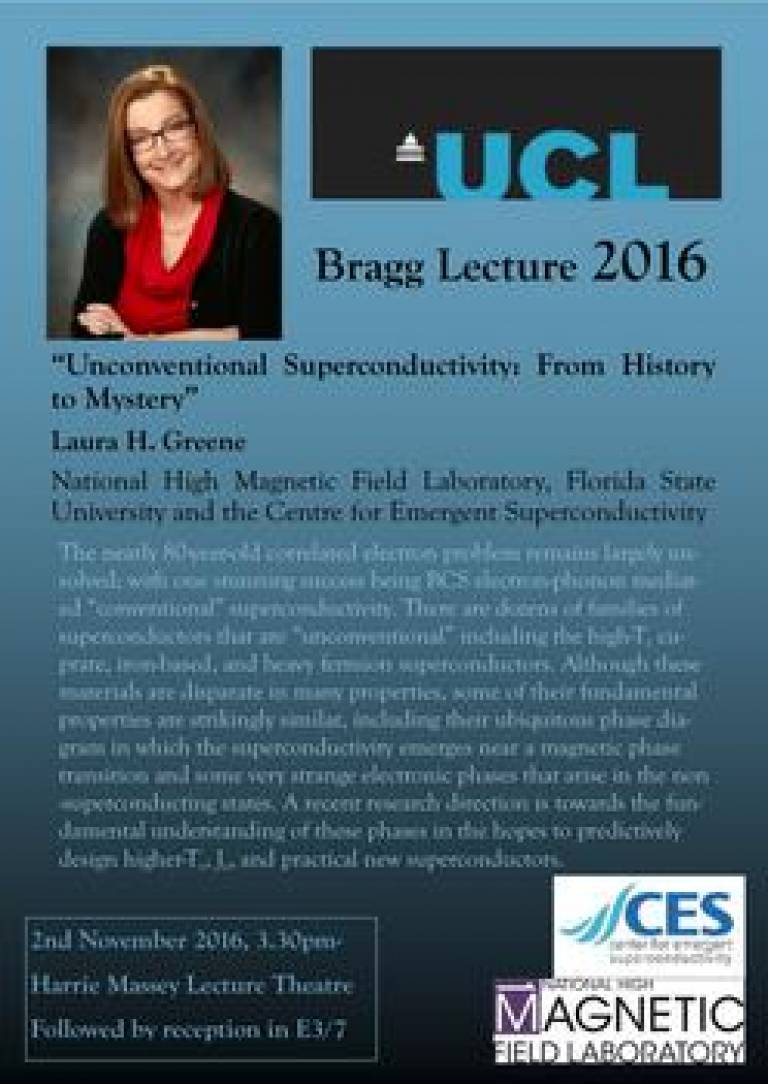[Event] Bragg Lecture 2016
8 October 2016
Professor
 greene.group/" target="_self">Professor Laura H Greene (National High Field Magnetic Laboratory, Florida State University)
greene.group/" target="_self">Professor Laura H Greene (National High Field Magnetic Laboratory, Florida State University)
'Unconventional Superconductivity: from History to Mystery'
Wednesday 2nd November 2016, 3.30pm, Harrie Massey Theatre
Abstract: The nearly 80-year-old correlated electron problem remains largely unsolved; with one stunning success being BCS electron-phonon mediated "conventional" superconductivity. There are dozens of families of superconductors that are "unconventional" including the high-Tc cuprate, iron-based, and heavy fermion superconductors. Although these materials are disparate in many properties, some of their fundamental properties are strikingly similar, including their ubiquitous phase diagram in which the superconductivity emerges near a magnetic phase transition and some very strange electronic phases that arise in the non-superconducting states. A recent research direction is towards the fundamental understanding of these phases in the hopes to predictively design higher-Tc, Jc, and practical new superconductors.
Biography: Professor Laura H Greene is Chief Scientist at the US National High Magnetic Field Laboratory and Francis Eppes Professor of Physics, Florida State University, where she is also Associate Director of the Center for Emergent Superconductivity. She is noted for her research on Andreev bound states and is an expert in strongly correlated Fermionic systems. During the discoveries of the first high transition temperature (Hi-Tc) superconductors, she and collaborators from AT&T laboratories were amongst the first to report on the role of oxygen and crystal structure in the copper-oxides. Professor Greene studied physics as an undergraduate at Ohio State University, and obtained her PhD in experimental physics at Cornell University in 1984. Professor Greene is President-Elect of the American Physical Society.
Date: Wednesday 2nd November 2016
Time: 3.30pm
Location: The lecture will take place in the Harrie Massey Lecture Theatre
 Close
Close

